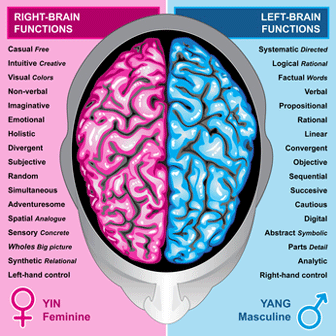Wechsler Intelligence Test and Categories
The Wechsler Intelligence test has different versions for infants, children, and adults. They are designed for infants, children, and adults. They are used widely as part of the criteria for admissions in schools and to measure the intelligence and mental gifts and disabilities in adults.
This part of the site shall help you to know what the Wechsler Intelligence Test is, its different categories and the purpose of its administration.
What is the Concept of Intelligence?
The Intelligence is sometimes referred to as the cognitive ability of an individual to assess, analyze and then to react accordingly. Scientists agree to different degrees that it is an ability that can be measured.
Different theories can be put together to understand what intelligence is –
- Is it the ability to react to the outside environment?
- Is it the ability to put forth solutions to a problematic sequence of events?
- Is it the ability to create new solutions?
- Is it the ability to comprehend the situation?
- Or is it all of the above?
What is Wechsler Intelligence Test?
The Wechsler Intelligence Tests comprise of, not one, but three individually conducted intelligence tests that measure the intelligence and different mental and cognitive abilities of individuals from ages two years to adulthood. These tests can be categorized as follows,
WPPSI-III, The Wechsler Preschool and Primary Scale of Intelligence (3rd edition)
This analysis is done as part of the admission tests for children who fall under the age bracket of 2 years and six months to 7 years and three months.
WISC-IV, The Wechsler Intelligence Scale for Children (4th Edition)
This test is conducted as part of the admission tests for kids who fall under the age bracket of 6 years to 16 years.
WAIS, the Wechsler Adult Intelligence Scale (3rd Edition)
This test assesses individuals who are 16 years or older.
The original Wechsler-Bellevue Intelligence Scale, designed in 1939, has been branched out into the above-stated categories for specific testing. The three tests have, therefore, were derived out of the same original test.
The Purpose
The Wechsler IQ Test that is specifically designed for pre-schoolers and young children, whether it is the original or revised edition, is administered to help place the children adequately according to their mental capabilities. While it can be used to determine the presence of a God-gifted ability, it can also be used efficiently to find a learning disability or perhaps restricted mental development.
The Wechsler IQ Test that has been designed for the adults can assess the presence of a vocational ability, gifted intellectual ability and on the other hand it can also determine whether or not, the individual is affected by organic deficits.
Who Conducts the Wechsler Intelligence Tests?
All of the Wechsler Intelligence Tests are organized and administered by a clinically and professionally trained examiner. He or she can be a certified psychiatrist or psychologist who will not only administer but also score and interpret the results of the tests.
How Will the Wechsler Tests Be Conducted?
The Wechsler IQ Tests, both for children and adults, are categorized into 5 performance and 6 verbal subtests. Each complete test will take approximately one hour. The scores are compiled alongside and are accumulated at the end of the test after which a Full-Scale IQ score is yielded.
- WPPSI-III, The Wechsler Preschool and Primary Scale of Intelligence (3rd edition)
This test consists of 6 verbal tests
Ø Information
Ø Animal house and its retest
Ø Vocabulary
Ø Picture completion
Ø Arithmetic
Ø mazes
And 5 performance tests,
Ø Geometric design
Ø Similarities
Ø Block design
Ø Comprehension
Ø Sentence construction
- WISC-IV, The Wechsler Intelligence Scale for Children (4th Edition)
This test comprises of following subtests
Ø Information
Ø Digit span
Ø Vocabulary
Ø Arithmetic
Ø Comprehension
Ø Similarities
Ø Picture completion
Ø Picture arrangement
Ø Block design
Ø Object assembly
Ø Digit symbol
Ø Symbol search (optional)
Ø Mazes (optional)
- WAIS, the Wechsler Adult Intelligence Scale (3rd Edition)
This test comprises of 11 subtests which are as follows
Ø Information
Ø Digit span
Ø Vocabulary
Ø Arithmetic
Ø Comprehension
Ø Similarities
Ø Picture completion
Ø Picture arrangement
Ø Block design
Ø Object assembly
Ø Digit symbol
The Wechsler Intelligence Test, whether it is for pre-schoolers, children or even adults, is a complex test to be administered. Practice tests can be found both online and offline; however, they are always, and should be, conducted by trained professionals who can draw out and comprehend the results.
Wechsler Adult Intelligence Scale and Sub-Tests
Wechsler Adult Intelligence Scale III and Old Versions
WAIS-A tool to classify your intelligence?
Reasons Behind Popularity Wechsler Intelligence Test
Practice with Free IQ Tests
Share Your Thoughts!
We find value in differences between learning, interpreting and overall opinions. Please share your thoughts freely about this topic, but always remain respectful. You can preview and edit on the next page before your submission is sent in. You will also be informed about this site's privacy policies. Thank you for your contribution.
Recent Articles
-
What type of test did I take
Apr 04, 22 04:09 AM
I was given a psychological test years ago, but wasn’t told what it was for. The rating used a bell curve and my score fell in the above average not yet -
ﹰﹰﹰﹰﹰﹰﹰGOOD
Aug 13, 21 03:20 PM
Since the enneagram test helps people to understand their strength and weaknessess. And helps them remove their weaknesses then the test is good -
Knowing the inner me
Aug 13, 21 03:17 PM
Sometimes I ask myself that is this my behaviour or not? Because I am really shy and I lack confidence, I find it hard to socialize with other people.I

